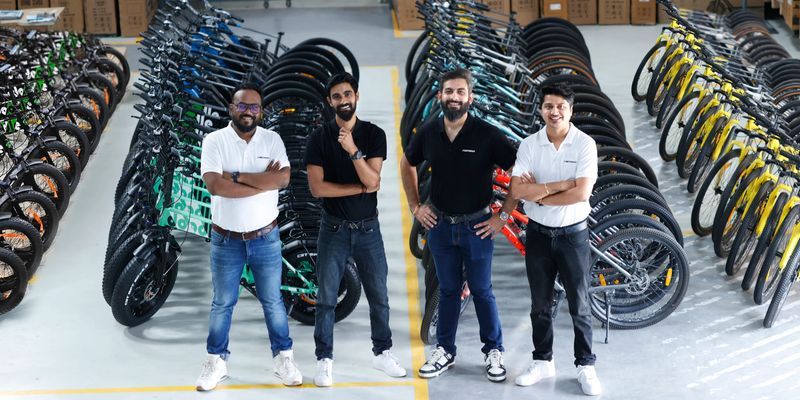Can user ratings and B2B partnerships give car-pooling startup Tripda an edge in India?
If Uber heated up the private taxi market in India, Brazilian startup Tripda is hoping to do the same to the car-pooling space. Car-pooling has been a common practice among people who know each other and travel on the same route regularly. Tripda is hoping to use technology, partnerships and user-ratings to help expand this circle of trusted people.
YourStory caught up with Tripda’s Global CEO Pedro Meduna and Country Manager, India, Nitish Bhushan, to understand their plans for the Subcontinent. Excerpts

India plans
While Tripda is not the first car-pooling startup in the country, it is quite bullish about the idea, which hasn’t really taken off in India yet. Startups like Let’s Ride and Taxeeta from Pune have been in the market for a couple of months,but are still taking baby steps. There are others too like Hopon, Cubito and SmartMumbaikar who have been trying something similar. Grallo is another venture that organizes transport for events using taxis, car-pools and buses. Alongside all this, there is the hyperactive radio taxi market, which -- as per estimates – is growing at 15-20% each year with as many as 20,000 cabs zipping across the country. All this action seems to indicate that peopleare looking for alternate modes of transport.
Nitish Bhushan, who has earlier worked with Bain & Company and had his own startup GiltStreet before joining Tripda, heads its Indian operations.

Tripda has a definite plan up its sleeve to tackle the challenges in the Indian market. It plans to start with Delhi and Mumbai, with Bangalore next on the expansion chart. In the Delhi NCR region, it will be focusing more on highway travel to Agra, Chandigarh, Meerut and Jaipur. In Mumbai, it will be starting with Mumbai-Pune highway rides.
According to global CEO Pedro Meduna, Tripda has a very systematic way of approaching the market. “We will be looking at partnerships to help Tripda grow. We plan to team up with universities, corporations and event companies to crack the space,” he says. “We are trying to organize the vibrant market that exists in these two metros. People are already travelling up and down, and do a lot of car-pooling. By just connecting more people to each other, it will be possible to streamline a lot of this unorganized car-pooling,” explains Bhushan.
Customers can register with Tripda using their Facebook IDs. On registration, a verification link is sent to their mobile phone and email for verification. In the future, Meduna says they will be uploading the driver’s license online for further authentication. At present riders who want to offer car-pooling can list their rides for free. Tripda currently is free for users, but in the future may look at subscription or ride-based revenue structures.

Tripda also rates people who list car-pools on its site, and Bhushan says the rating system is a key element of their services. Just like restaurants, hotels, and travel sites are leveraging ratings to boost traffic; Tripda relies on user rating to identify good car-poolers versus the not-so-great ones. People with a good rating get more choices, as compared to those without it. “We have seen that once someone lists a ride and completes it successfully, he/she becomes a loyal user,” he says. Tripda also suggests to riders the price that should be charged for car-pooling and there is a cap on the price that can be charged per rider on each route. Green, yellow and red colour coding of the price per route helps to keep the costs in check. Colour coding is also tied up to the rating system for a particular rider.
Brazil was the first market Tripda launched in. Today, it has over 50,000 users and has clocked over 20,000 trips. It hopes to recreate those numbers in India as well by using a mix of marketing, media and partnerships, says Meduna.
Who are they?

Tripda was founded earlier this year in a joint partnership between Adi Vaxman, Pedro Meduna, Joe McFarlane and Eduardo Prota in Brazil. The seed capital came from Rocket Internet. Meduna explains the birth of the idea by saying that he and his partners had experienced how difficult it was to get good comfortable transport options for inter-city/inter-state travel. “The public transport system is not very convenient. If you can find someone you know, and do a long drive with them, the experience is so much better,” he says.Tripda was incubated by Rocket Internet, which has also given them seed investment. The startup so far has a presence in 10 countries, including places like Mexico, Argentina and Uruguay in Latin America; and Taiwan, Malaysia, Philippines and Singapore in Southeast Asia. It entered the US and India markets three weeks ago.
Website : Tripda











